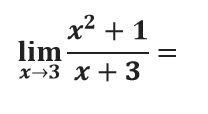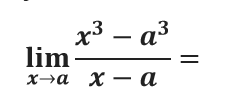-
 Home
Home
-
 News
News
Latest Educational News Stories
Daily update of all national, international news, picture stories, college / university announcements and educational events.
-
 Colleges
Colleges
Pakistan's Largest Database of Colleges and Universities
Explore Largest Directory of Private and Govt. Colleges, Universities and find best institute for your future Education.
-
 Courses
Courses
-
 Admission
Admission
-
 Lectures
Lectures
-
 Online Test
Online Test
Short Question
- 9th Class Physics Short Questions
- 9th Class Chemistry Short Questions
- 9th Class Math Short Questions
- 9th Class Biology Short Questions
- 9th Class Computer Short Questions
- 9th Class English Short Questions
- 10th Class Physics Short Question
- 10th Class Chemistry Short Question
- 10th Class Math Short Question
- 10th Class Biology Short Question
- 10th Class Computer Short Question
- 10th Class English Short Question
-
 Past Papers
Past Papers
-
 Date Sheets
Date Sheets
-
 Results
Results
Exam Results 2024
Check online Results 2024 Matric Inter BA BSc B.Com MA MSc M.Com CSS PCS MCAT ECAT of all educational boards and universities in Pakistan
-
 Study Abroad
Study Abroad
Study Abroad Programs and Opportunities for Pakistani Students
Explore free study abroad search to find programs, consultants, events to study in USA, UK, Australia, China, Malaysia and many others.
-
 Jobs
Jobs
-
 Tutors
Tutors
-
 More
More
-
 Apps
Apps
MCQ's Test For Chapter 0 "ICS Part 2 Mathematics Chapter 1 Test Online"
Try The MCQ's Test For Chapter 0 "ICS Part 2 Mathematics Chapter 1 Test Online"
-
Total Questions20
-
Time Allowed30
Question # 1


Question # 2
Inverse hyperbolic functions are expressed in terms of natural:
Question # 3


Question # 4


Question # 5


Question # 6


Question # 7
Which one is an exponential function ?
Question # 8
Which one is an identity function ?
Question # 9


Question # 10
Which one is not an exponential function ?
Question # 11
The function y = ln x is a/an -------------- function of x.
Question # 12


Question # 13


Question # 14


Question # 15
x2 + y2 = 4 is:
Question # 16
f (x) = x secx, then f(0)=
Question # 17
Let f(x) = x2, real valued function then domain of f is the set of all:
Question # 18
The term function was introduced by:
Question # 19
Parametric equations x = a cos t, y = a sin t represent the equation of:
Question # 20


ICS Part 2 Mathematics Chapter 1 Online MCQ's Test
Top Scorers Of Chapter 0 "ICS Part 2 Mathematics Chapter 1 Test Online" MCQ`s Test
-
J jena 05 - Jan - 2026 00 Min 57 Sec 20/20 -
M master Masteramjad 24 - Oct - 2025 03 Min 17 Sec 20/20 -
A Armghan Jutt 13 - Feb - 2026 03 Min 27 Sec 20/20 -
R Rehana Tariq 29 - Sep - 2025 07 Min 38 Sec 20/20 -
S Saira farooq 27 - Nov - 2025 01 Min 40 Sec 19/20 -
M Mujtaba Ahmad 13 - Jan - 2026 01 Min 50 Sec 19/20 -
E Educational Orion 13 - Oct - 2025 02 Min 53 Sec 19/20 -
T Talal Shahid 30 - Jan - 2026 03 Min 03 Sec 19/20 -
F Faizan Ahmad 01 - Nov - 2025 04 Min 12 Sec 19/20 -
A Army Carft 24 - Oct - 2025 00 Min 55 Sec 18/20 -
S Sameen Fatima 03 - Feb - 2026 03 Min 26 Sec 18/20 -
M Mahnoor Siddiq 01 - Nov - 2025 22 Min 10 Sec 18/20 -
A Azlan Jawad 10 - Oct - 2025 03 Min 53 Sec 17/20 -
H hafiza muneeza 29 - Oct - 2025 01 Min 57 Sec 16/20 -
A awais sajid 27 - Oct - 2025 00 Min 23 Sec 15/20
FSc Part II Mathematics Chapter 0 Important MCQ's
| Sr.# | Question | Answer |
|---|---|---|
| 1 | If a variable y depends on a variable x in such a way that each value of x determines exactly one value of y, then y is a __________ of x. |
A. Independent variable
B. Not function
C. Function
D. None of these
|
| 2 |

|
A. Implicit
B. Explicit
C. Exponential
D. Logarithmic
|
| 3 |

|
A. R
B. R - {2}
C. R - {2, -2}
D. R - {-2}
|
| 4 |

|
|
| 5 | A function P(x) = 6x4 + 7x3 + 5x + 1 is called a polynomial function of degree -------- with leading coefficient -------. |
A. 4, 6
B. 2, 7
C. 2, 3
D. 2, 5
|
| 6 | tanh x = | |
| 7 | x = 3 cos t, y = 3 sin t represent |
A. Line
B. Circle
C. Parabola
D. Hyperbola
|
| 8 | Which one is an exponential function ? | |
| 9 | Cosh2 x - Sinh2 x = |
A. 1
B. -1
C. 2
D. -2
|
| 10 | The area A of a circle as a function of its circumference C is: |








.jpg)











